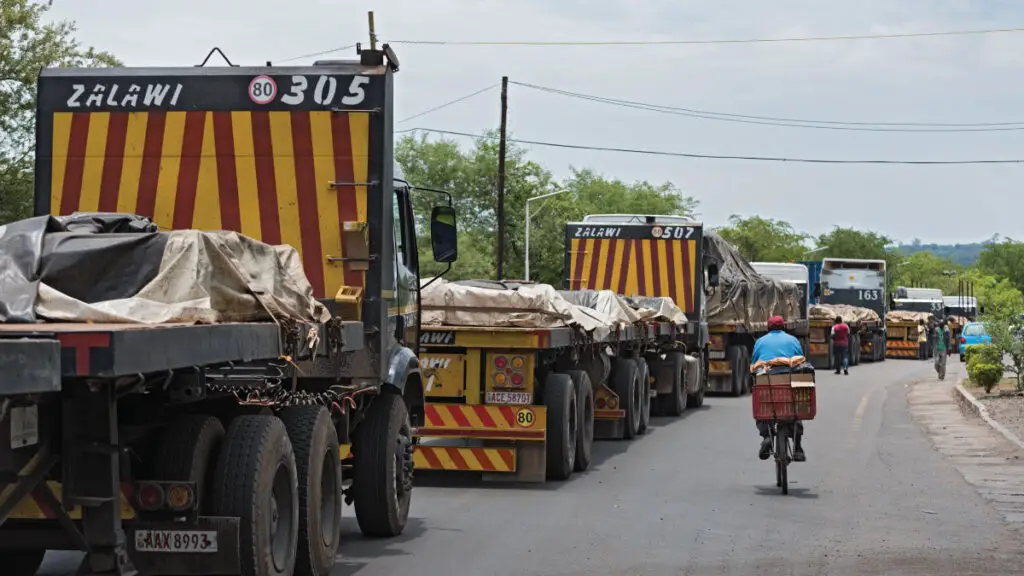The African Continental Free Trade Area (AfCFTA) could deliver far greater benefits in terms of jobs, growth, and poverty reduction than previously estimated – making it a potential game changer for Africa’s economic development if its ambitious goals are fully realized, a World Bank 2022 report indicates.
Two key points stand out in that World Bank statement, first ‘AfCFTA could deliver greater benefits…than previously estimated,’ and second, ‘if it’s ambitious goals are fully realized.’
The first point begs the question how could a continent-wide trade pact be undervalued,’ and the second is the possibility that the one trade zone might not take off as planned.
Also Read: East African SMES ready to tap into the wider African market
Let us look at the AfCFTA goals and determine whether they are indeed ambitious or just realistic and if so, let us review the hurdles that may derail AfCFTA from achieving its goals.
First, let us reconsider what the AfCFTA really is. As the name suggests, the pact that came into being in 2021 creates a continent-wide Free Trade Area. That scope is immense; 55 countries, a market that is 1.3 billion people strong and a combined GDP of US$3.4 trillion.
In its first phase, which came to effect in January of 2021, tariffs on almost 90 percent of goods traded across Africa were reduced and so were trade barriers. According to the World Bank report, the reduction of tariffs alone “…could raise income by 7 percent, or $450 billion, by 2035, reducing the number of people living in extreme poverty by 40 million, to 277 million;”
When you factor in the related increase in foreign direct investment (FDI), the World Bank study finds these goals realistic and even undervalued. Sector pundits project that when increased FDI is factored into the equation then real income will rise by an estimated 8 percent by 2035.
“FDI is important because it brings the fresh capital, technology, and skills so badly needed to raise living standards and reduce Africa’s dependence on volatile commodity exports,” the report explains.
Inflows of FDI will bring jobs and transfer of knowledge, it will build local capacity, and ultimately, it will bring about the needed connections for African companies to efficiently join regional and global value chains.
In fact, with the needed integration, Africa’s exports to the world are bound to go up 32 percent by 2035 and 109 percent on intra-African exports.
This increased trade, exchange of knowledge and deeper global market integration will serve to resolve the prevailing under representation of women. The World Bank estimates that wages for women will rise by 11.2 percent and 9.8 percent for men by 2035.
In fact, with the needed political will for integration through harmonization of policies then there would be an all round increased investor confidence since the fear of changing regulations across borders will be allayed. Revenues could go up 9 percent and 50 million people will be lifted out of extreme poverty by 2035.
However, for these goals to be realized hurdles such as ‘political will’ must be jumped. At the executive level, political will means expedited negotiations on policies and enforcing compliance and administration.
As the Secretary General of the AfCFTA Secretariat H.E. Wamkele Mene put it; “The AfCFTA sends a strong signal to the international investor community that Africa is open for business, based on a single rule-book for trade and investment.”
Also Read: Infrastructure Development will open Africa’s job opportunities
AfCTA shared prosperity or wider wealth gap for Africa
The AfCFTA is meant to bring about increased shared prosperity in Africa, but this is not going to happen if SMEs are not empowered to participate. Value addition factories and mini-plants also need to be supported and protected in order to compete at a global scale.
As matters stand, it is big business with the financial muscle that are now gaining from the pact. As the common man suffers inflation, regional corporations are enjoying reduced tariffs and barriers trading between countries and stomping out the ‘mom and pop’ shops and farms.
“Distributional impacts should be carefully monitored, and policies designed to provide social safety nets and programs for worker-retraining and job-switching,” cautions the World Bank.
There is need for grass-root awareness campaigns to ensure the common man understands and utilizes the agreement. This fact cannot be underestimated lest the AfCFTA only serves to drive a wider divide between Africa’s rich and poor.
Along with increased awareness, there is need for increased capital access that is possible with support for the fast-growing fintech sector. With limited capital, then Africa’s SMEs can only dream of the gains of regional free trade.
SMEs cannot afford the needed logistic expenses to transport their goods from one country to another. Short of enabling SMEs to form mergers or pool transportation logistics.
There is need for policies that support SMEs and enable them to participate in regional trade. Loans to SMEs must be specialized, umbrella fiscal policies will not work. When a conglomerate CEO receives loans at the same interest rate as an SME then the playing field is far from even.
As matters stand, it is the wealthy, the few millionaire owners that own fleets of trucks and miles of warehouses that are benefiting from the AfCFTA. At the moment, it is the big corporations that are benefiting and short of strategic intervention, this state of play will remain. Instead of shared prosperity, AfCFTA will only bring a wider divide between the rich and poor in Africa.
